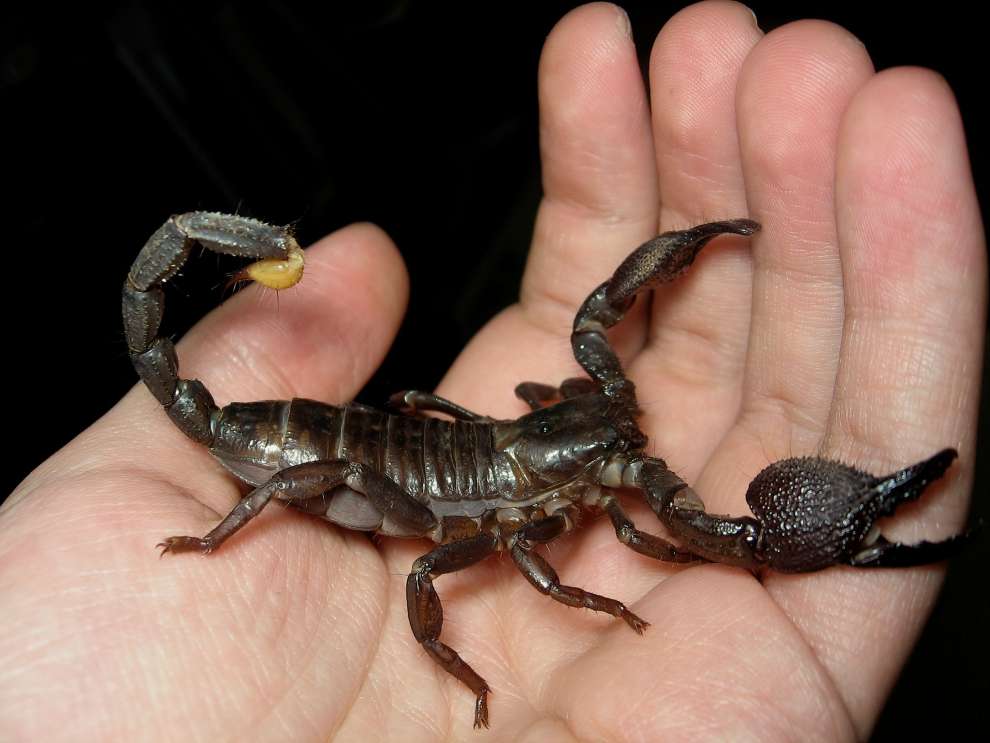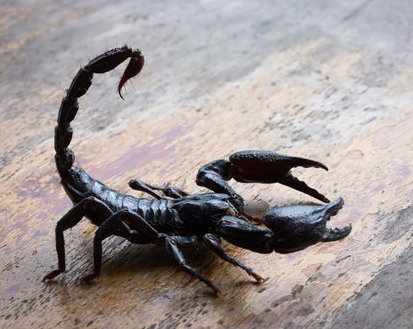Monday 15/09/2025
Scorpio = million-dollar gold
An ambitious farm that produces poison
From time to time many of us have heard or read about various farms or breeding facilities for the productive and economic exploitation of resources — snail farms, poultry or rabbit production farms, and others.

So what if we told you that in Nigeria there is a farm that is not so simple. What if we told you that in Nigeria there is a farm that deals with milking scorpions with the ultimate aim of exploiting the venom they produce. And if someone asks what madness drives these people to milk poison, the answer is simple. One single liter of this venom has a commercial value that reaches up to €2.7 million.
Yes, you heard right — you probably read it.
€2.7 million for 1 liter of venom, of which only a few drops can be lethal to a human. Yet the fearless Nigerian workers milk more than 10,000 scorpions twice a month in order to collect this precious treasure.
According to the director of this not very well-known farm, Mohammed Usman, the venom is carefully extracted from scorpions native to the area and consists mainly of the species deathstalker (Leiurus quinquestriatus) and the emperor (Pandinus imperator).
This man, a former soldier passionate about scorpions, keeps the scorpions in transparent containers and cares for more than ten thousand scorpions daily so that they thrive. He appears not to fear their stings and does not hesitate even to place them on his body, as he himself shows in the following video https://www.youtube.com/watch?v=MG0whISAgNE&t=3s
After each venom extraction, then, according to Mr. Usman, these scorpions undergo a recovery process as well as preparation through feeding so they can be ready again for the next extraction.
Scientist and PhD researcher in nanotechnology Hammed Faleke stated, however, that a gallon of venom (3.4 liters) costs about $10 million (€9,175,000). The secret that makes this venom so expensive on the market is the complexity and composition of the proteins, enzymes and peptides contained in it.
However, milking a single scorpion can yield, in the best case, up to 2 ml of venom. With the advent of artificial intelligence and advances in nanotechnology this may change and bring more efficient results. This venom is intended to enter the pharmaco-medical sciences and cosmetology with the ultimate aim of creating new products.
So far, after one year of operation of this innovative farm, Mr. Usman informed us that he has not yet managed to produce a gallon of venom.

 English
English
 Ελληνικά
Ελληνικά Русский
Русский
 Posted by
Michalis Venetsianos
Posted by
Michalis Venetsianos






